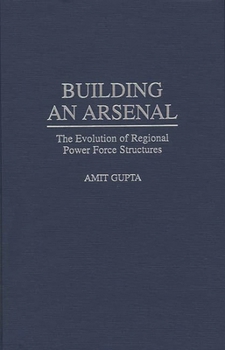Building an Arsenal: The Evolution of Regional Power Force Structures
In the new world disorder, U.S. forces and military doctrine are being reconfigured to deal with the threat posed by regional powers. This change in military doctrine has resulted from the perceived intentions of various regional powers to build advanced conventional weapons and weapons of mass destruction. Gupta argues that such a strategy is a response to the announced or supposed intentions of regional powers rather than to their actual capabilities. He follows the pathologies of the Cold War where the Soviet Union's military intentions were countered without taking into account its actual military capability. The result was an escalating arms race. In the post-Cold War context, continuing such Cold War pathologies not only sustains high defense spending but also leads to losing opportunities for co-opting regional powers into institutional mechanisms for creating a more peaceful and stable international system. In order to study the gap between intentions and capabilities, Gupta carries out an in-depth analysis of the weapons acquisition process in India, Israel, and Brazil. He then uses his analyses of regional power military capability to examine the sort of role that this class of countries can play in the emerging international system.
Format:Hardcover
Language:English
ISBN:027595787X
ISBN13:9780275957872
Release Date:November 1997
Publisher:Praeger
Length:232 Pages
Weight:1.18 lbs.
Dimensions:0.9" x 6.0" x 8.2"
Customer Reviews
0 rating





